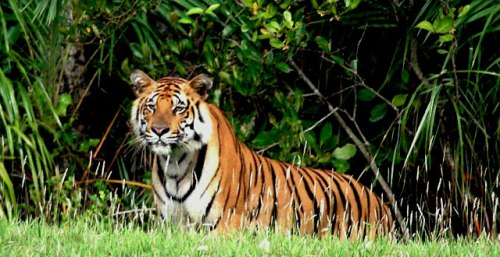
Royal Bengal Tiger
Sundarbans is the largest mangrove forest in the world. It can be
found in the south-west corner of Bangladesh. Now it is one of the seven
wonders. The total part of the Sundarban reserved forest including the West
Bengal portion, comprises of 10, 000(Ten Thousand) square. kilometer, of which
Bangladesh portion is approximately 6000(six Thousand) square. km including new
emerging islands. The whole world famous honey is collects from here. The area
is divided into 55 administrative forest compartments via the Department of forest, each with a land area of 40
to 160 sq. km and even divided into
several islands. Traditional “Rash Mela” is celebrated at Dubla island in every
365 days of Maghi Purnima. There are three wildlife sanctuary areas ‘Kotka-Kachikhali, Tiger point’, ‘Heron point’ and
‘Manderbaria‘, lots of unexplored natural beaches, innumerable
rivers, canals and creeks in the Sundarban forest.
The forest dwellers gradually developed a culture on their own,
having an isolated life from the main stream, which expressed itself in many
options, peculiarly suited to the local forest ecosystem. There are some
rituals and religious festivals affecting the Sundarban. Annual fair at the
Dubla island on the day of Rash Purnima is affecting the month of November.
Borderline Hindu community, devotees from different parts of the country
including India gather around the Dubla island to bathe and make offerings
against a wish. And the forest product collectors engaged in numerous
professions, before entering the forest had been paying homage to certain gods
and deities whom they thought to be their saviours and protectors. Banabibi is
very widely worshipped as their savior.
The Sundarbans throughout the
years attracts adventurous forest product collectors, hunters, nature and
wildlife lovers, researchers and tourists. The people require Sundarbans are
mainly ‘bawalis’ who collect Gol Pata, mouals who collect honey and
woodcutters. Gathering wild honey in the wildness of the Sundarban is among the
most oldest professions practiced by the dwellers of the area and still
practiced in the customary ways. Honey hunter’s community lives along the
borderline of the western forests are mostly destitute afternoon laborer,
although they are descendents of their professional ancestors. Honey Hunting
season continues for 3-4 months starting afterwards March or beginning of the
April in every year.
The
Sundarbans play an important role for the overall design of the southwestern
region of Bangladesh as well as in the national economy. It is the single
largest source of forest. The forest has been declared a world heritage site by
UNESCO in 1999.
All travel in Sundarbans mangrove forest is boat based. The
closest airport to Khulna, Shatkhira or Mongla was at Jessore with regular
shuttle service to Khulna. Also the bus and train service
between Dhaka and Khulna is accessible.
All visitors intending to enter
the ‘Sundarban’ mangrove forest are required to receive an official permit
issued by the Department of Forest, Khulna, Bangladesh.
The Sundarbans offers
spectacular sights and experiences year-round to the visitors. But it is more
comfortable to visit the forest during winter (October-15th March)
due to their mild sun and relatively pleasant temperature during then in
compared to summer. But during the monsoon the forest exhibits its lush green
vegetation additionally, the tourists have higher chance to spot snakes and
nesting activities of several species.

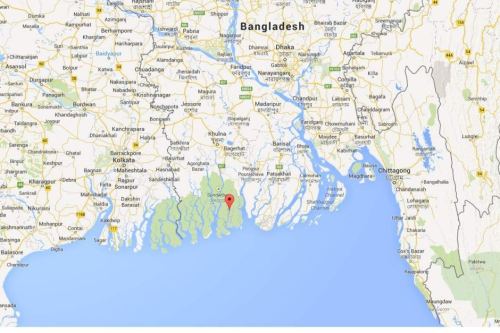
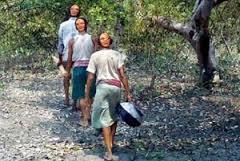
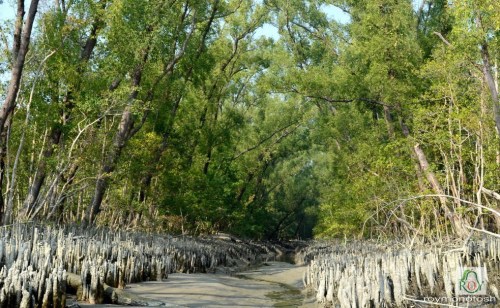
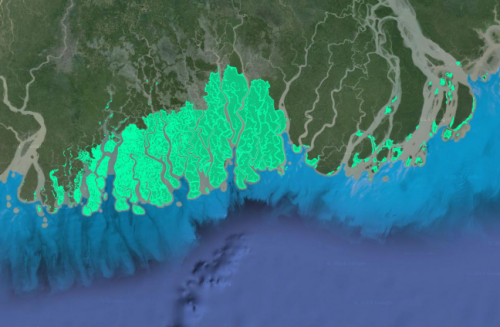
No comments:
Post a Comment